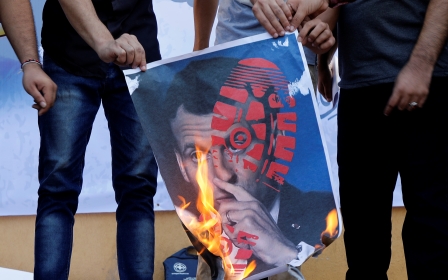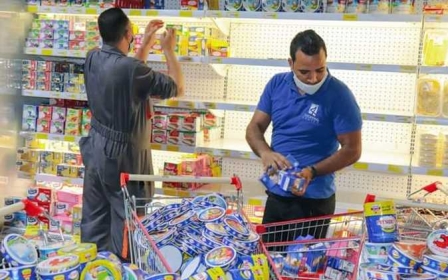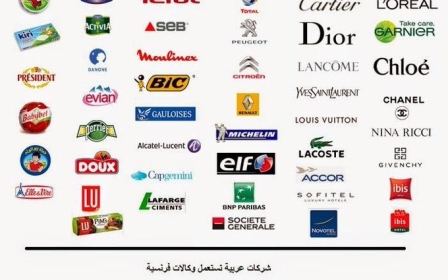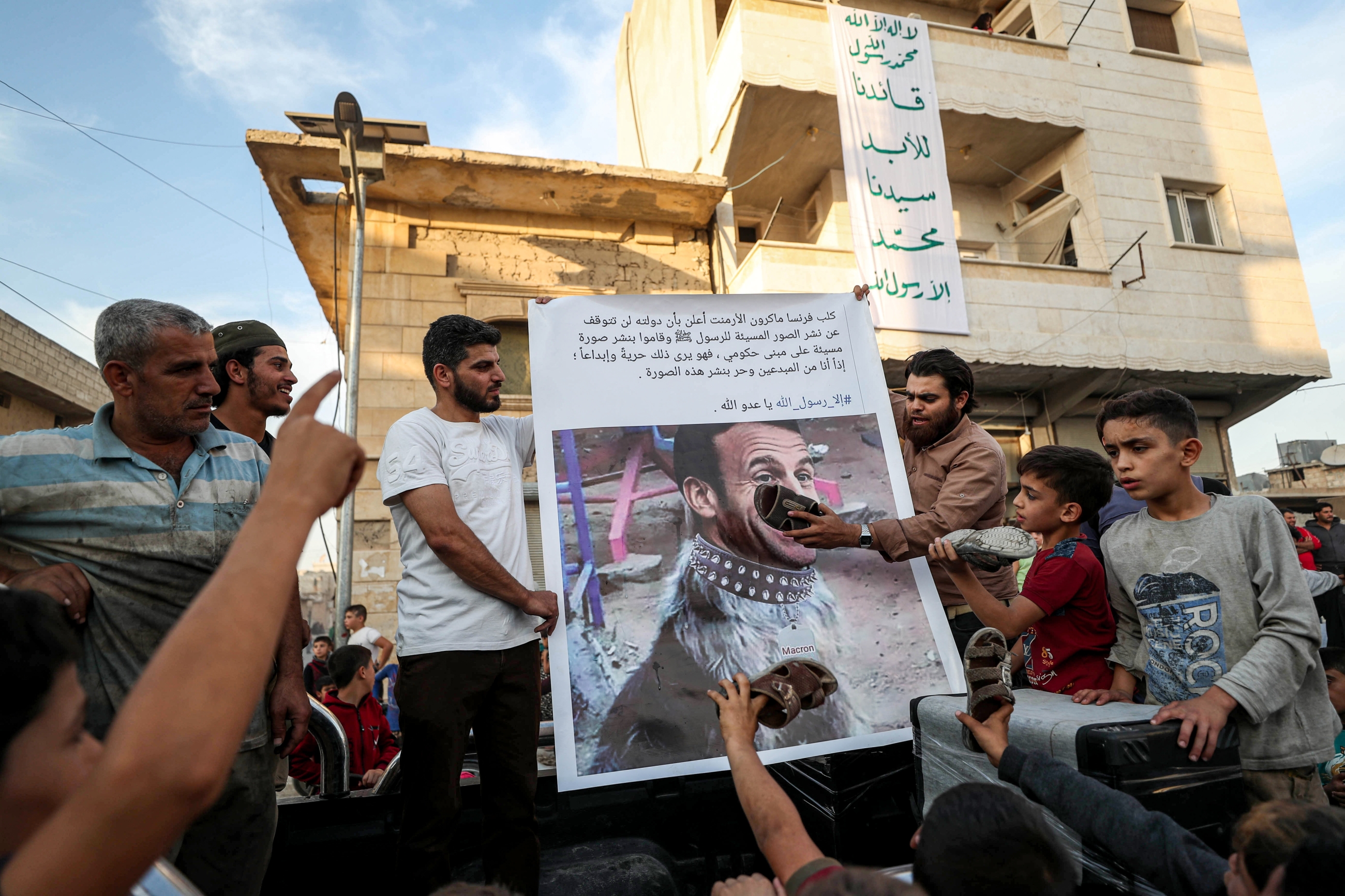
In pictures: Demonstrators stage boycott, protests against France in Arab and Muslim countries
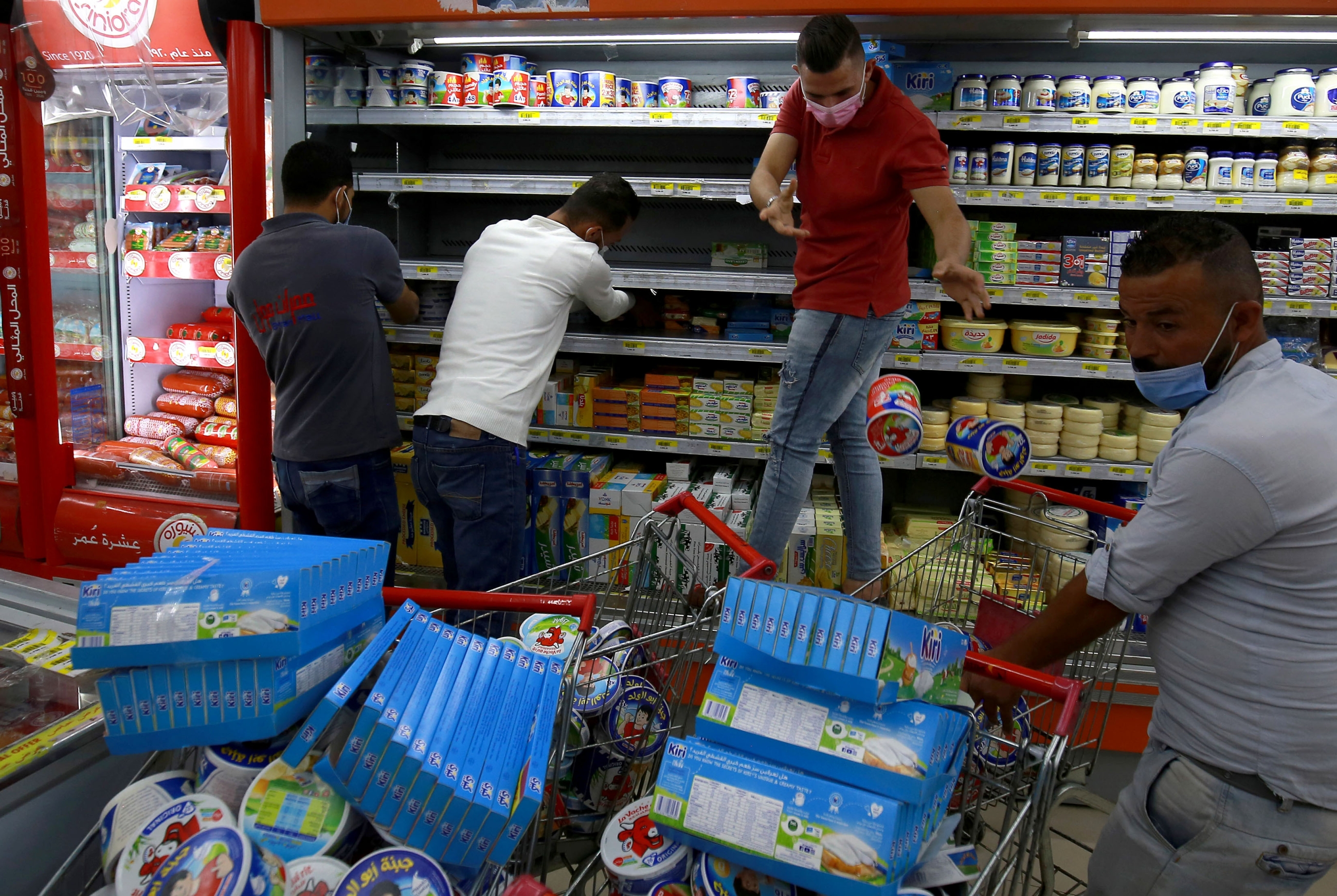
Protests and boycotts against France have spread across several countries in the Middle East, North Africa and Asia, in response to President Emmanuel Macron’s recent comments on Islam and his backing of satirical outlets publishing caricatures of the Prophet Muhammad.
Earlier this month, Macron said Islam was a religion "in crisis all over the world today", and pledged to fight "Islamist separatism" that he said was a threat to some Muslim communities around France. He also voiced his support for satirical magazine Charlie Hebdo's "right" to print cartoons of the prophet.
In Jordan's capital, Amman, several supermarkets were pictured removing French products from their shelves, as boycott calls spread across the Arab world and beyond (Khalil Mazwari / AFP).
On Monday, the Jordanian foreign ministry met with the French ambassador to express its "strong dissatisfaction" at the publishing of cartoons of the Prophet Muhammad.
In Kuwait, displays of products belonging to French brands such as L'Oreal and Garnier were emptied and removed (Ahmed Hagagy/Reuters)
The NGO Union of Consumer Co-operative Societies, which represents more than 70 Kuwaiti establishments, issued the boycott directive in response to "repeated insults" against the Prophet.
Kuwait's foreign minister, Sheikh Ahmed al-Nasser al-Sabah, met the French ambassador to Kuwait on Sunday. Many governments in the region have similarly summoned French ambassadors for discussions.
Sabah condemned the 16 October beheading of teacher Samuel Paty, who was killed near his school in a suburb of Paris after he showed cartoons of the Prophet Muhammad during a class on free speech. The Kuwaiti official also stressed the need to avoid insulting religion in official and political remarks that "inflame hatred, enmity and racism".
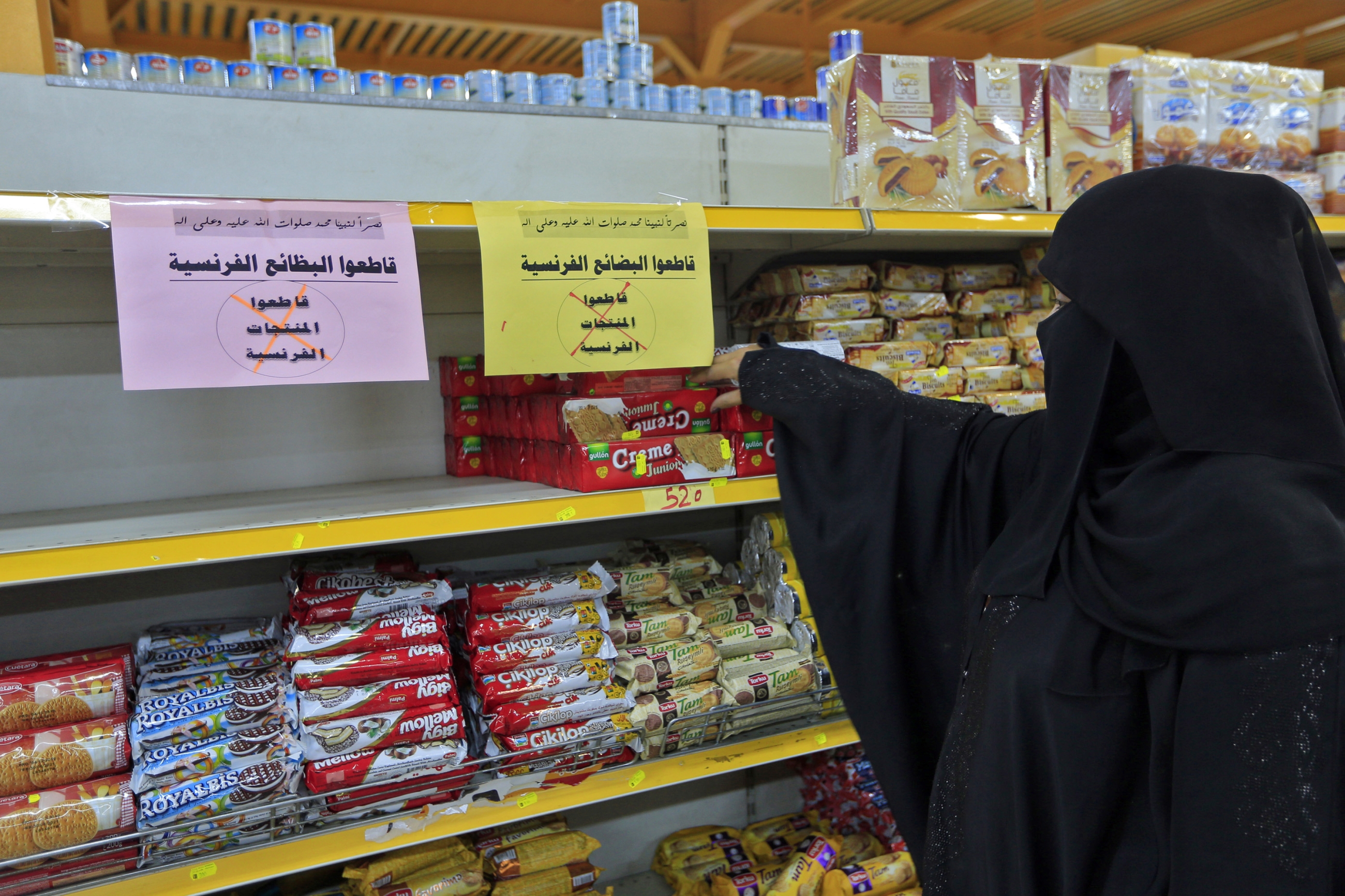
French items were also removed in many Yemeni supermarkets, as shops in Sanaa joined the boycott (Muhammad Huwais/AFP).
In response, President Macron tweeted: "We will not give in, ever. We respect all differences in a spirit of peace. We do not accept hate speech and defend reasonable debate. We will always be on the side of human dignity and universal values."
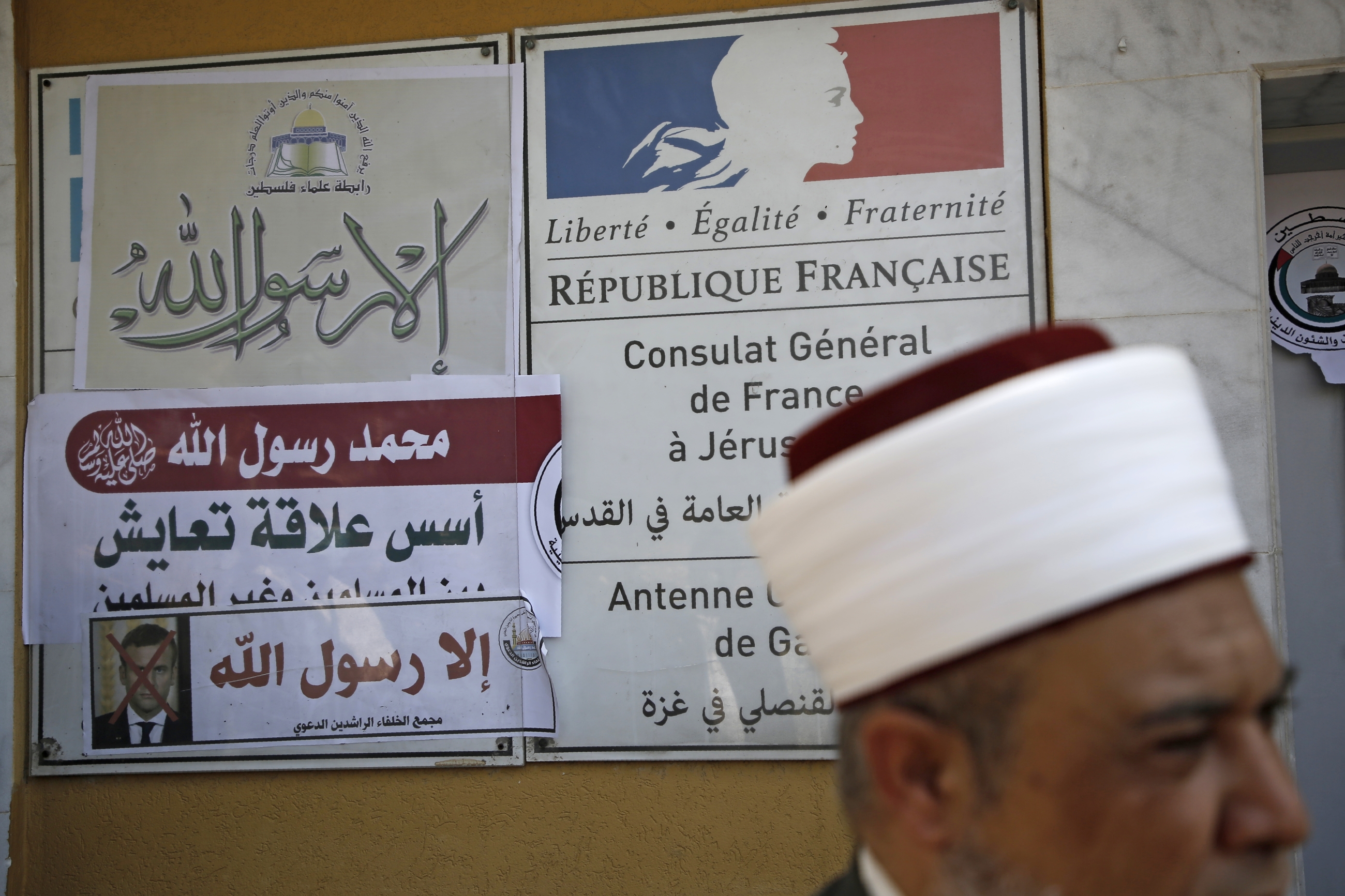
Protests were held across Palestine, including the under-siege Gaza Strip.
Outside the French Cultural Center in Gaza City, signs reading "Anyone but the Prophet" and "Prophet Muhammad established coexistence" were posted on the walls (Mohammed Abed/AFP).
Hamas, which has controlled Gaza since 2007, slammed France on Saturday for encouraging the publishing of "insulting" cartoons.
"Macron's encouragement to publish insulting cartoons of the Prophet, peace be upon him, is an attempt to revive the Crusades," a senior spokesperson for the group said.
Elsewhere in Palestine, a caricatured image of Macron as a dog with the caption "The clouds are not hurt by the dogs' barking" was hung up on a building in the occupied West Bank city of Nablus (Mohamad Torokman/Reuters)
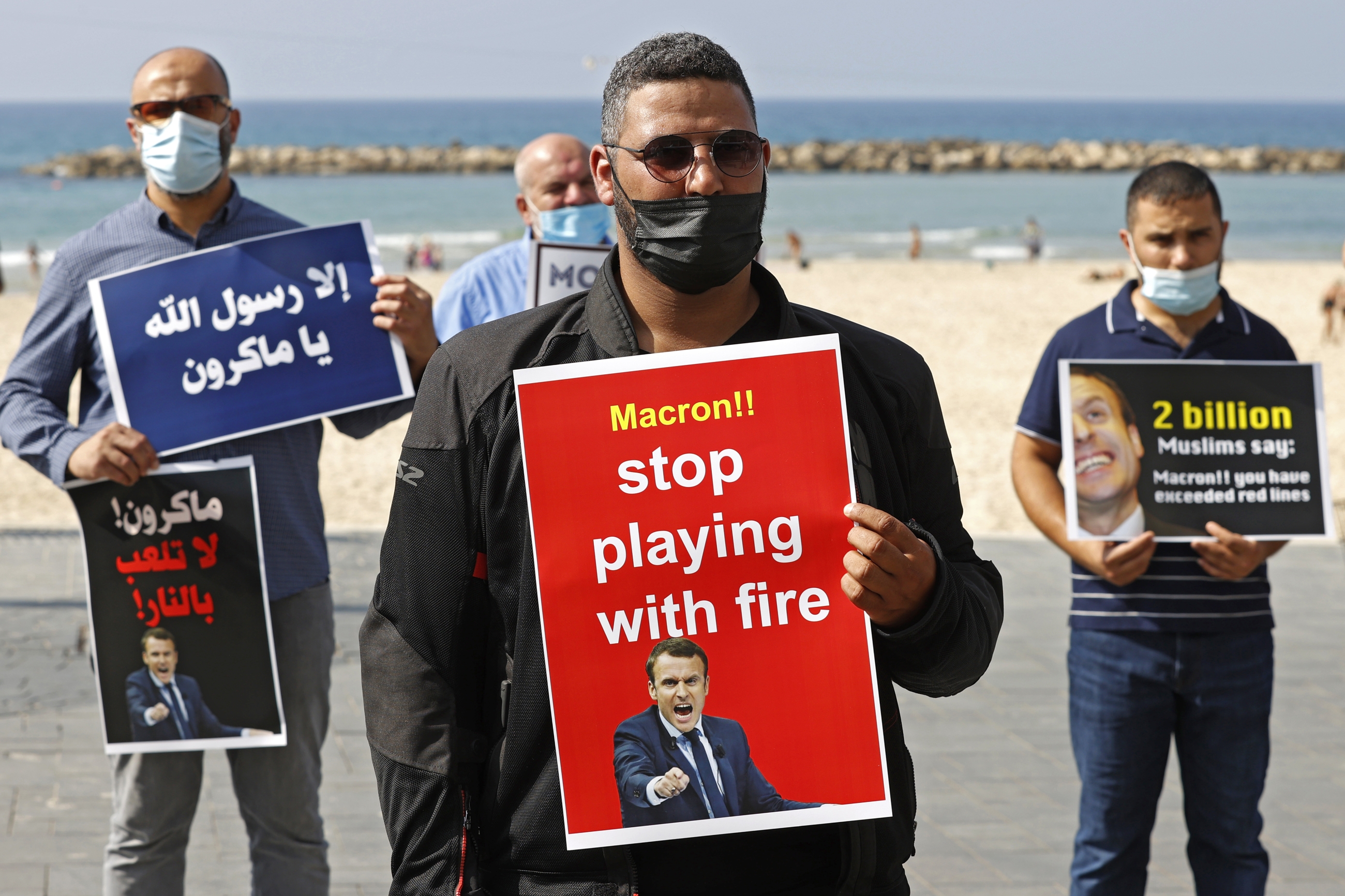
Palestinian citizens of Israel also joined in, with a number of protesters holding signs near the French embassy in Tel Aviv (Jack Guez/AFP).
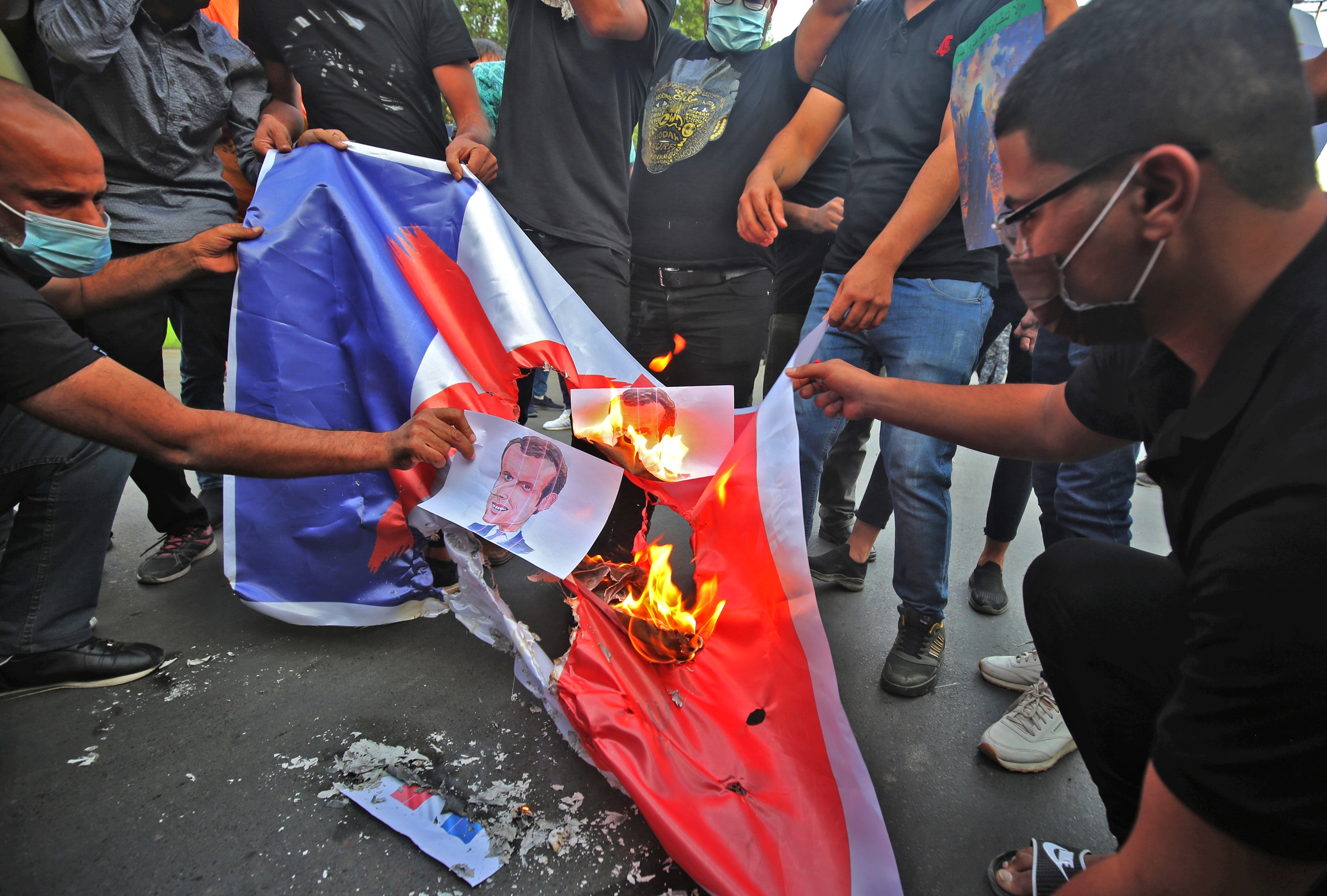
Another city in the region which saw protests outside the French embassy was Baghdad, where flags and images of Macron were burned (Ahmad Al-Rubaye/AFP).
Iraqi Prime Minister Mustafa al-Kadhimi met with the French president in Paris just over a week ago, as part of a European tour to discuss Iraq's economy, security and healthcare.
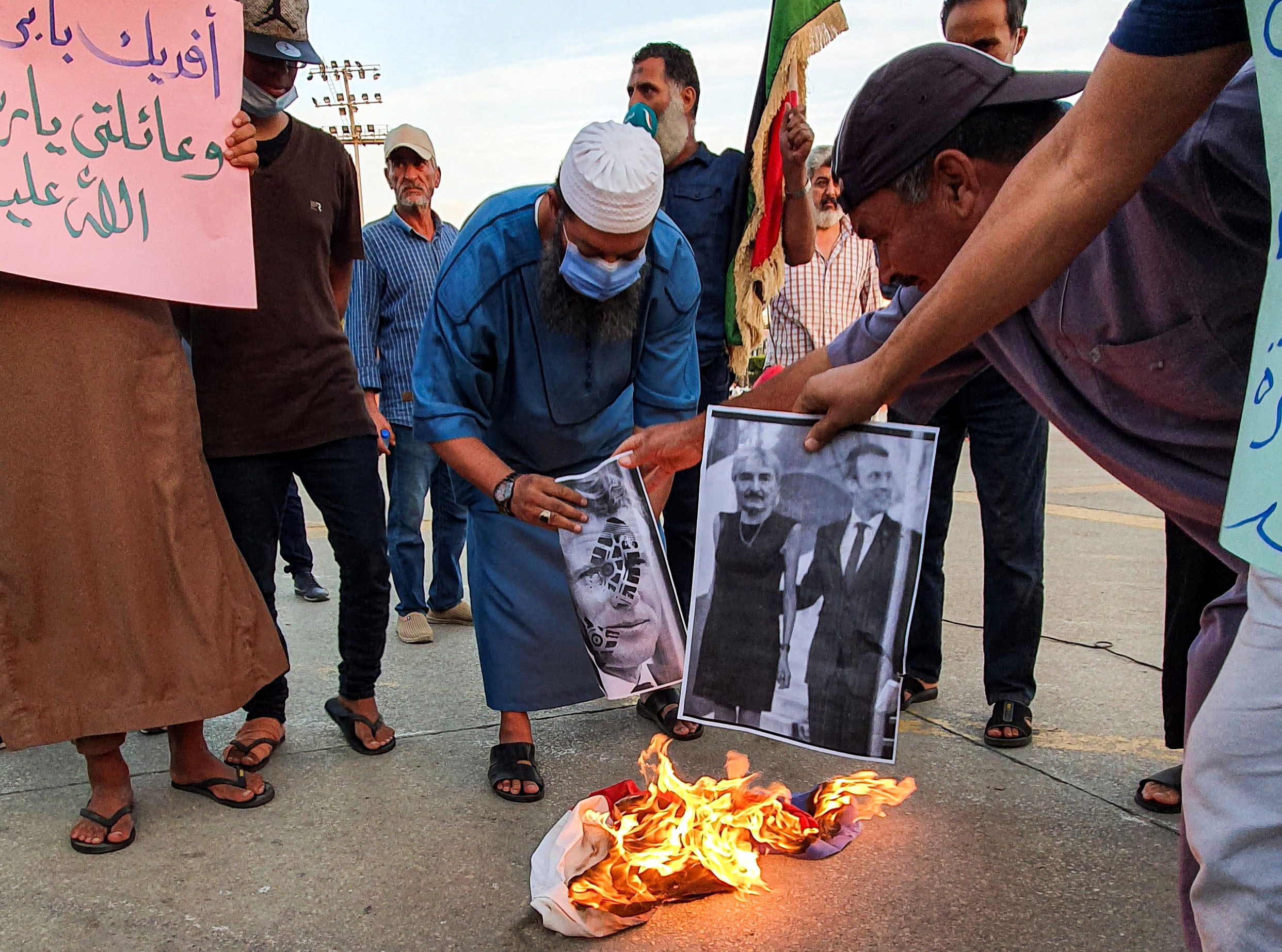
In Libya, images of Macron photoshopped next to eastern commander Khalifa Haftar were set alight in Tripoli (Mahmud Turkia/AFP).
France has been accused of "playing both sides" in Libya, engaging with the internationally recognised government of Prime Minister Fayez al-Sarraj, while also cultivating strong relations with Haftar - who has attempted to seize the capital with his Libyan National Army (LNA).
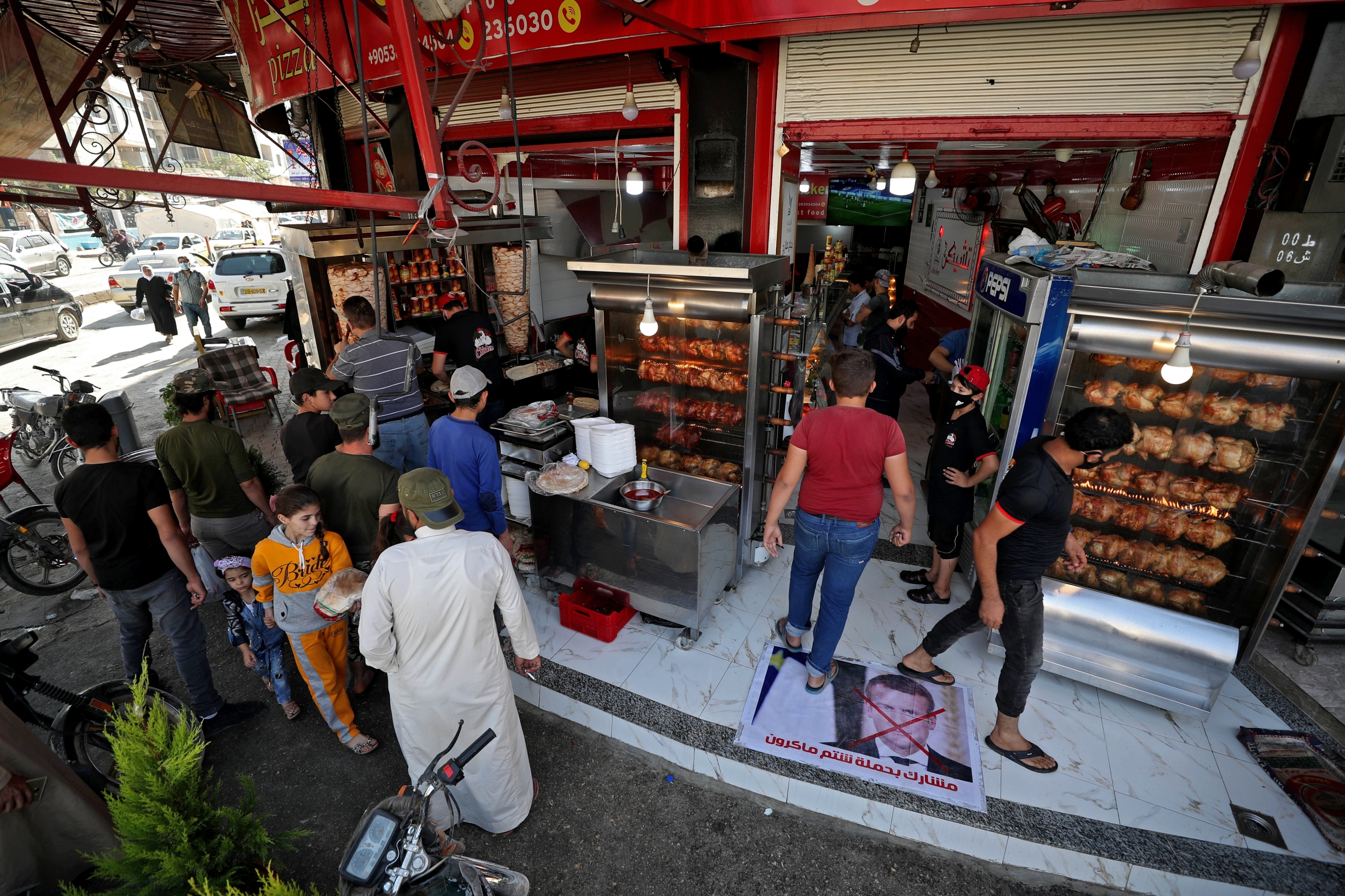
In Syria's Idlib governorate, a crossed-out image of Macron was placed at the entrance of a street-food restaurant, which scores of people stepped on as they entered and departed (Omar Haj Kadour/AFP).
French investigators said that Abdullah Anzorov, the 18-year-old suspect who was killed by police after allegedly beheading Paty, had communicated with two people from an Islamist group in Syria. However, authorities added there was no evidence to suggest the attack was ordered from abroad.
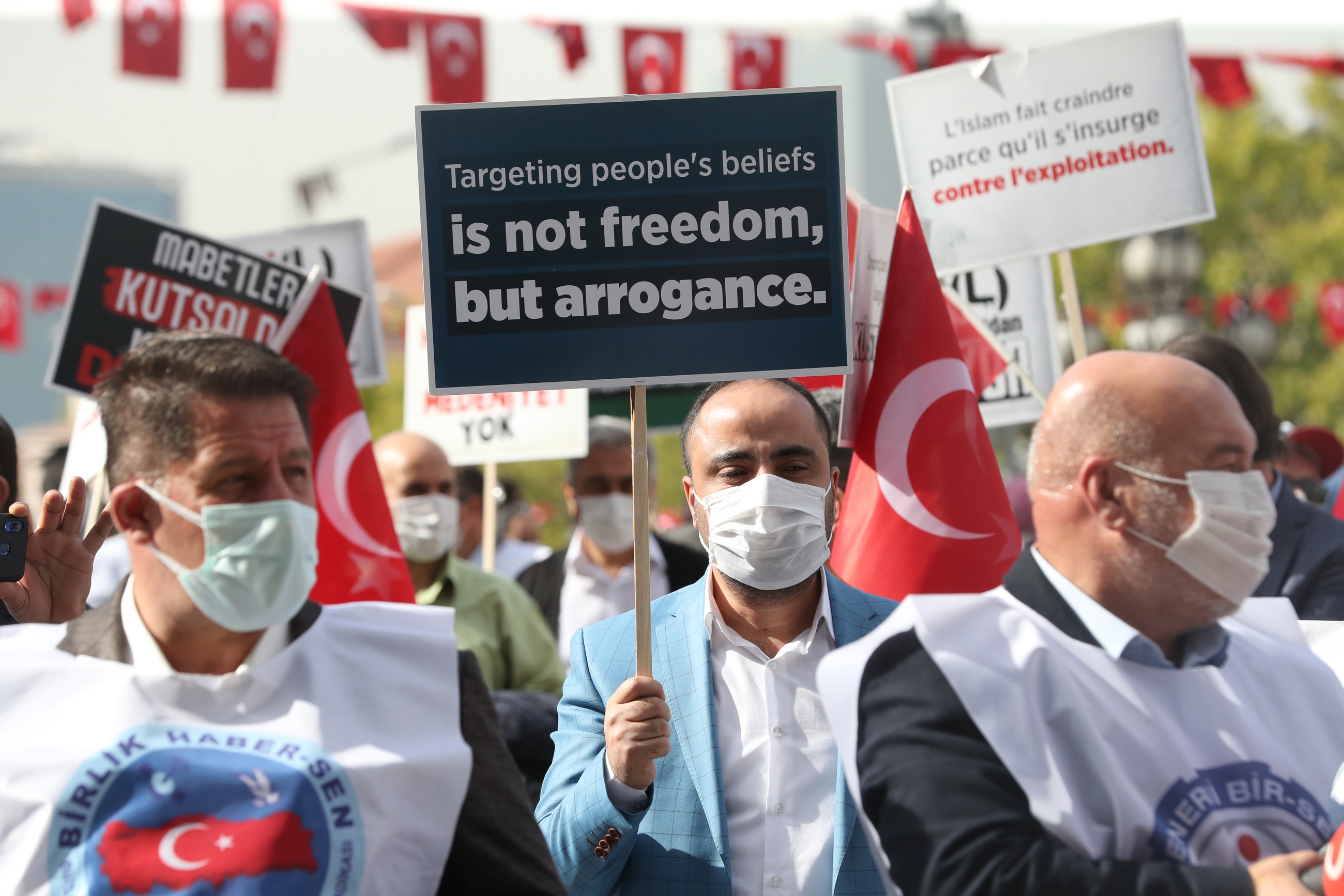
Protests were held in Istanbul on Tuesday, a day after President Recep Tayyip Erdogan called on citizens to "never" buy French goods (Adem Altan/AFP).
"Just like they say 'Don't buy goods with Turkish brands' in France, I am calling on all my citizens from here to never help French brands or buy them," Erdogan said on Monday.
France is the 10th biggest source of imports into Turkey and the seventh biggest market for Turkey's exports, according to the Turkish Statistical Institute.
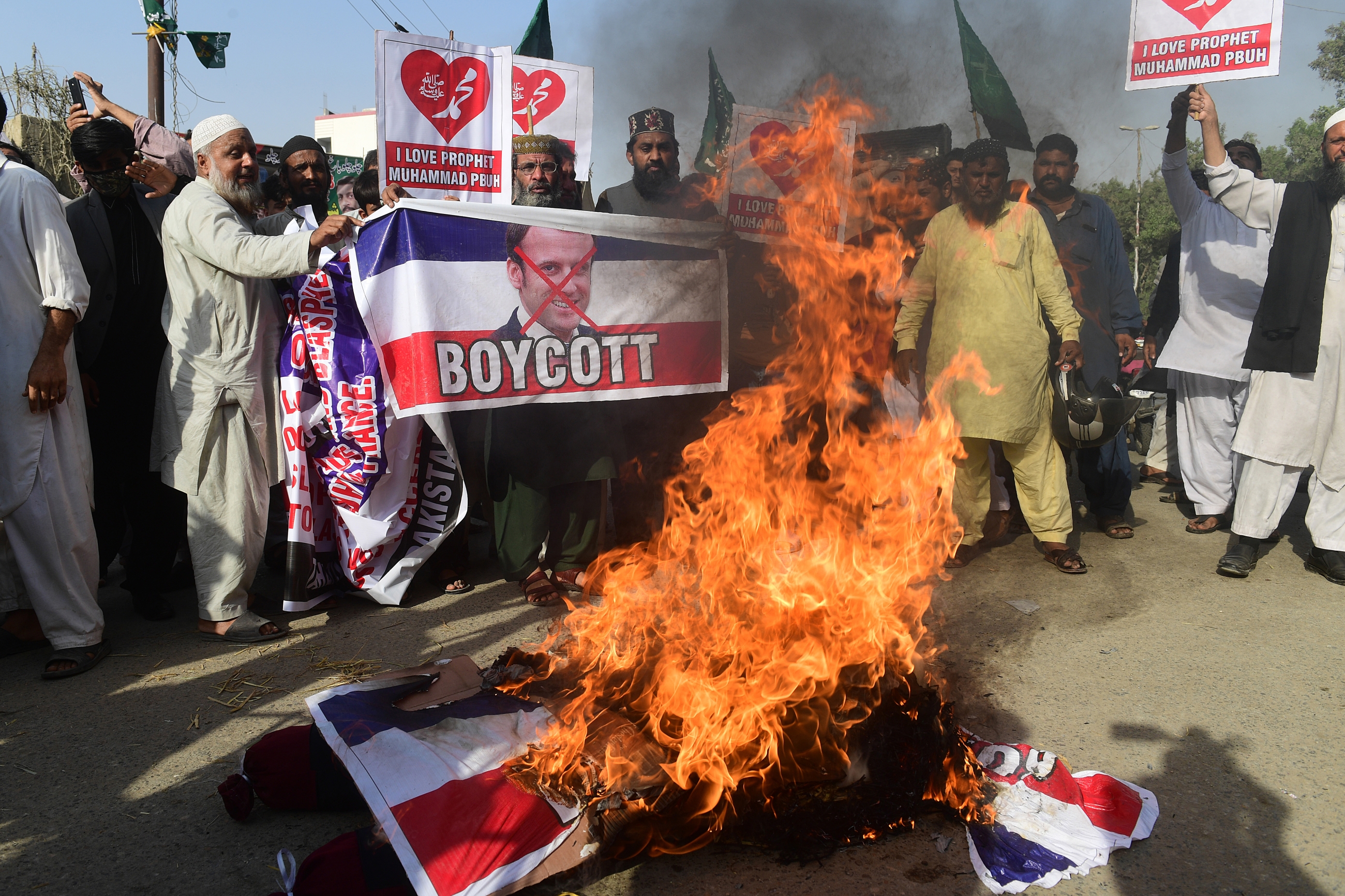
Outside of the Middle East, protests were held across various cities in Pakistan, including in Peshawar, Lahore and Rawalpindi.
In Karachi, demonstrators burned an effigy of Macron, while holding signs urging a boycott and expressing their love of the Prophet Muhammad (Asif Hassan/AFP).
Earlier this week, Pakistani Prime Minister Imran Khan accused Macron of "attacking Islam" and wrote a letter calling on Facebook CEO Mark Zuckerberg to ban Islamophobic content.
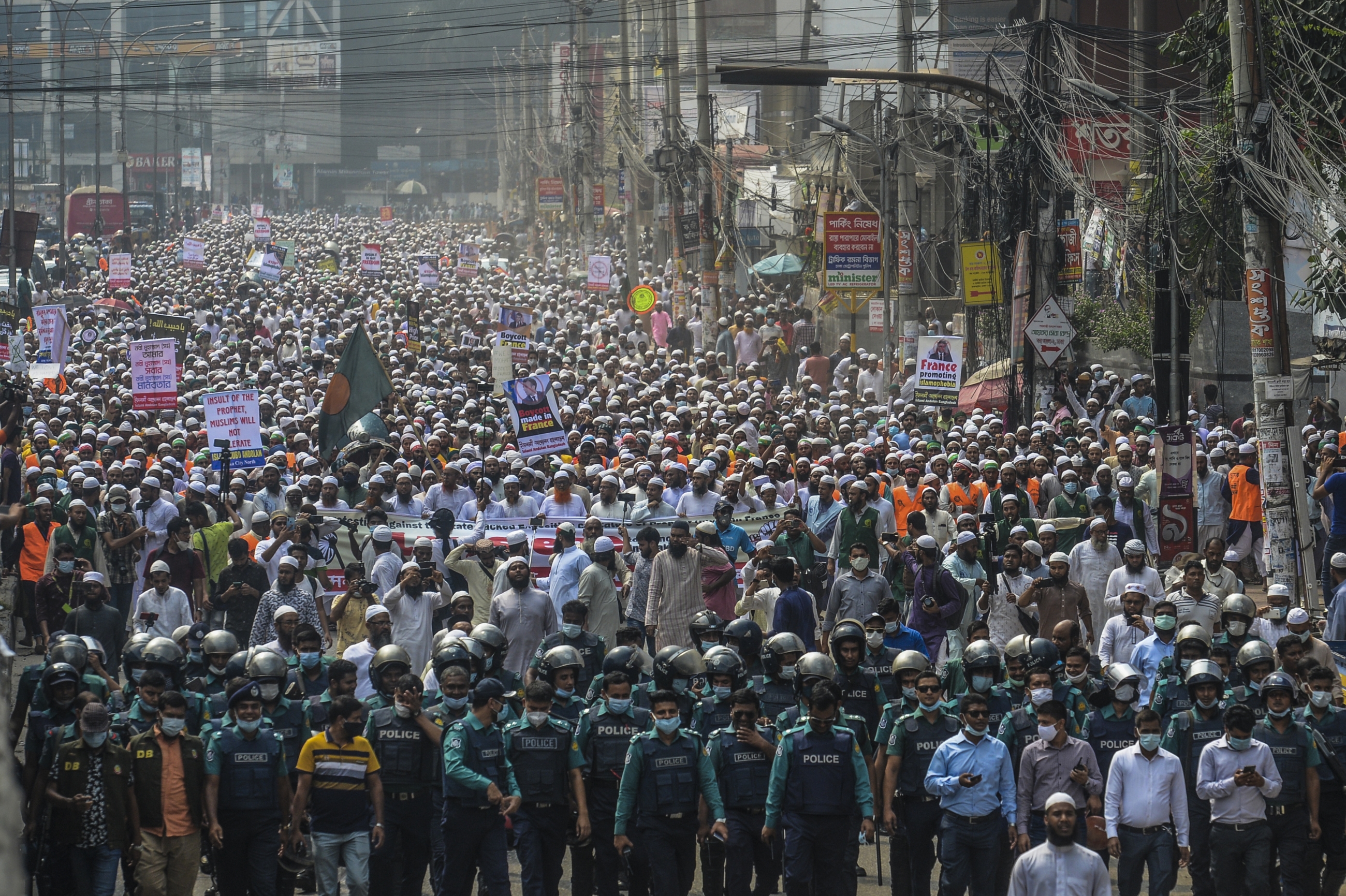
There was also a large scale demonstration in the Bangladeshi capital, Dhaka, in which police said 40,000 people took part (Munir Uz Zaman/AFP)
Hundreds of armed officers used a barbed-wire barricade to stop the demonstrators, who dispersed peacefully before they could get close to the French embassy.
This article is available in French on Middle East Eye French edition.
Middle East Eye delivers independent and unrivalled coverage and analysis of the Middle East, North Africa and beyond. To learn more about republishing this content and the associated fees, please fill out this form. More about MEE can be found here.


